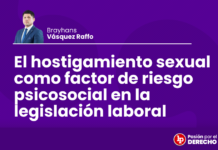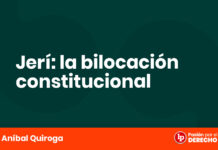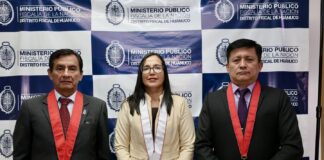Fundamentos destacados. 37. La amplitud del margen de apreciación del Estado depende no sólo del derecho o derechos de que se trate, sino también, por lo que respecta a cada derecho, de la propia naturaleza del interés en cuestión. El Tribunal de Justicia considera que el derecho a la identidad, que incluye el derecho a conocer la filiación, forma parte integrante de la noción de vida privada. En tales casos, la ponderación de los intereses en conflicto exige un examen especialmente riguroso.
38. El Tribunal considera que las personas que tratan de establecer la identidad de sus ascendientes tienen un interés vital, protegido por el Convenio, en recibir la información necesaria para descubrir la verdad sobre un aspecto importante de su identidad personal. Al mismo tiempo, debe tenerse en cuenta que la protección de terceras personas puede impedir que se les obligue a ponerse a disposición para someterse a pruebas médicas de cualquier tipo, incluidas las pruebas de ADN (véase Mikulić, citada, § 64). El Tribunal debe examinar si en este caso se ha alcanzado un justo equilibrio entre los intereses en conflicto.
39. En la ponderación de los distintos intereses en juego, debe tomarse en consideración, por una parte, el derecho del demandante a establecer su filiación y, por otra, el derecho de terceros a la inviolabilidad del cuerpo del difunto, el derecho al respeto de los difuntos y el interés público en preservar la seguridad jurídica.
40. Si bien es cierto que, como observó el Tribunal Federal en su sentencia, el demandante, que ahora tiene 67 años, ha podido desarrollar su personalidad incluso en ausencia de certeza en cuanto a la identidad de su padre biológico, debe admitirse que el interés de un individuo por descubrir su filiación no desaparece con la edad, sino todo lo contrario. Además, el demandante ha demostrado un verdadero interés por conocer la identidad de su padre, ya que ha intentado durante toda su vida obtener información concluyente al respecto. Tal comportamiento implica un sufrimiento mental y psíquico, aunque éste no haya sido atestiguado médicamente.
[Traducción de LP]
37. The extent of the State’s margin of appreciation depends not only on the right or rights concerned but also, as regards each right, on the very nature of the interest concerned. The Court considers that the right to an identity, which includes the right to know one’s parentage, is an integral part of the notion of private life. In such cases, particularly rigorous scrutiny is called for when weighing up the competing interests.
38. The Court considers that persons seeking to establish the identity of their ascendants have a vital interest, protected by the Convention, in receiving the information necessary to uncover the truth about an important aspect of their personal identity. At the same time, it must be borne in mind that the protection of third persons may preclude their being compelled to make themselves available for medical testing of any kind, including DNA testing (see Mikulić, cited above, § 64). The Court must examine whether a fair balance was struck between the competing interests in this case.
39. In weighing up the different interests at stake, consideration should be given, on the one hand, to the applicant’s right to establish his parentage and, on the other hand, to the right of third parties to the inviolability of the deceased’s body, the right to respect for the dead, and the public interest in preserving legal certainty.
40. Although it is true that, as the Federal Court observed in its judgment, the applicant, now aged 67, has been able to develop his personality even in the absence of certainty as to the identity of his biological father, it must be admitted that an individual’s interest in discovering his parentage does not disappear with age, quite the reverse. Moreover, the applicant has shown a genuine interest in ascertaining his father’s identity, since he has tried throughout his life to obtain conclusive information on the subject. Such conduct implies mental and psychological suffering, even if this has not been medically attested.
[Idioma original]
COUR EUROPÉENNE DES DROITS DE L’HOMME EUROPEAN COURT OF HUMAN RIGHTS
THIRD SECTION
CASE OF JÄGGI v. SWITZERLAND
(Application no. 58757/00)
JUDGMENT
STRASBOURG
13 July 2006
FINAL
13/10/2006
In the case of Jäggi v. Switzerland,
The European Court of Human Rights (Third Section), sitting as a Chamber composed of:
Boštjan M. Zupančič, President,
John Hedigan,
Luzius Wildhaber,
Lucius Caflisch,
Vladimiro Zagrebelsky,
Alvina Gyulumyan,
Egbert Myjer, judges,
and Vincent Berger, Section Registrar,
Having deliberated in private on 22 June 2006,
Delivers the following judgment, which was adopted on that date:
PROCEDURE
1. The case originated in an application (no. 58757/00) against the Swiss Confederation lodged with the Court under Article 34 of the Convention for the Protection of Human Rights and Fundamental Freedoms (“the Convention”) by a Swiss national, Mr Andreas Jäggi (“the applicant”), on 27 June 2000.
2. The applicant, who had been granted legal aid, was represented by Mr B. Mégevand, a lawyer practising in Geneva. The Swiss Government (“the Government”) were represented by their Agent, Mr P. Boillat, former Deputy Director of the Federal Office of Justice in charge of the Human Rights and Council of Europe Section.
3. On 26 October 2004 the President of the Third Section decided to communicate to the Government the complaints concerning the right to respect for private life. Under the provisions of Article 29 § 3 of the Convention, it was decided to examine the merits of the application at the same time as its admissibility.
THE FACTS
4. The applicant was born in 1939 and lives in Geneva.
5. On 14 July 1939, before the applicant’s birth, the State-appointed guardian brought an action against A.H., the applicant’s putative biological father, seeking a declaration of paternity and payment of a contribution towards his maintenance. A.H. admitted that he had had sexual relations with the applicant’s mother but denied paternity.
6. On 26 July 1939, after the applicant’s birth, his mother declared on registering the birth that the father was A.H., with whom she had had sexual relations during the period of conception.
7. On 30 January 1948 the Geneva Court of First Instance dismissed the action for a declaration of paternity. In the absence of an appeal, the judgment became final.
8. In 1958 the applicant, who had been placed with a foster family, met his mother, who informed him that his father was A.H. According to the applicant, he had regular contact with his father and received presents from him and a monthly payment of 10 Swiss francs ((CHF) – 6.40 euros (EUR)) until he reached the age of majority. A.H. and his family denied those allegations. Only A.H.’s legitimate son admitted that he had received a telephone call from the applicant after A.H.’s death.
9. Furthermore, A.H. always refused to undergo tests to establish his paternity. In 1976, shortly after his death, a blood-type analysis carried out at the applicant’s request did not rule out his being the latter’s father.
10. In 1997 the applicant contacted the Geneva University Institute of Forensic Medicine to have a private paternity test carried out, but his request was refused.
11. On 3 December 1997 the applicant successfully applied to renew the lease for A.H.’s tomb until 2016 for the sum of CHF 2,600 (EUR 1,657).
12. On 6 May 1999 the applicant applied to the Canton of Geneva Court of First Instance for revision of the judgment of 30 January 1948. In the course of the proceedings he also requested a DNA test on the mortal remains of A.H.
13. On 25 June 1999 the Court of First Instance refused the request for a DNA test.
14. On 2 September 1999 the Canton of Geneva Court of Justice rejected the applicant’s application on the ground that it was impossible to obtain a declaration of paternity without also amending the register of births, deaths and marriages.
15. The Court of Justice argued that the applicant was not entitled to such an amendment of the register as a result of the 1976 revision of the Civil Code abolishing the exceptio plurium constupratorum, a defence which the putative biological father could use in a paternity suit. However, in his application to the Court of First Instance the applicant had sought revision of the 1948 judgment, in which the exceptio plurium had been relied on to the benefit of A.H.
16. The Court of Justice noted that before 1978 (when the revised Civil Code had come into force), an illegitimate child who was under ten years of age on 1 January 1978 had had the option of converting a maintenance claim into a civil action (paternity suit) where the exceptio plurium had been raised. However, this was no longer permitted under the revised Civil Code.
[Continúa…]

![Principio de primacía de la realidad para verificar pago de alimentos en delito de omisión a la asistencia familiar [Exp. 8506-2023-30]](https://img.lpderecho.pe/wp-content/uploads/2025/04/Giammpol-Taboada-Pilco-LPDerecho-218x150.png)
![Condena a preso por no cumplir mandato judicial de alimentos antes de ingresar al penal [Exp. 8506-2023-30]](https://img.lpderecho.pe/wp-content/uploads/2024/06/POST-Giammpol-Taboada-Pilco-documento-firmas-generico-LPDerecho-218x150.jpg)


![En el caso de la Corte Suprema y cortes superiores, solo son precedentes vinculantes aquellas reglas nacidas dentro de un proceso judicial (un caso concreto) y posean carácter de ejecutoria suprema; por tanto, los acuerdos plenarios solo sirven como doctrina jurisprudencial de unificación de criterios [Exp. 04240-2024-HC/TC, ff. jj. 14-17]](https://img.lpderecho.pe/wp-content/uploads/2025/10/CASO-CORTE-SUPREMA-CORTES-SUPERIORES-LPDERECHO-218x150.jpg)

![Ley Orgánica del Registro Nacional de Identificación y Estado Civil (Ley 26497) [actualizada 2025]](https://img.lpderecho.pe/wp-content/uploads/2025/05/Ley-organica-del-registro-nacional-de-identificacion-y-estado-civil1-LPDERECHO-218x150.jpg)











![La prescripción de predios rústicos prevista en el DL 653 debe interpretarse de manera conjunta con el art. 950 del CC, de modo que solo es aplicable el plazo de cinco años si concurren también los requisitos de «justo título» y «buena fe» [Casación 5581-2023, f. j. 7.2]](https://img.lpderecho.pe/wp-content/uploads/2023/01/Logo-LP-con-fondo-guinda-LPDERECHO-218x150.png)

![[Balotario notarial] Instrumentos públicos notariales: protocolares y extraprotocolares](https://img.lpderecho.pe/wp-content/uploads/2025/09/INSTRUMENTO-PUBLICO-NOTARIAL-LPDERECHO-218x150.jpg)

![¿Es legalmente viable que la entidad obligue a un servidor civil a laborar en horarios y días no habituales (como feriados o días no laborables) sin que dicha condición haya sido comunicada previamente? [Informe Técnico 00500-2015-Servir-GPGSC]](https://img.lpderecho.pe/wp-content/uploads/2022/12/trabajo-remoto-documento-servir-LPDerecho-218x150.png)

![El derecho a vacaciones anuales, corresponde a todo trabajador que haya completado un año de servicios continuos, equivalente a un minimo de seis dias laborales, sin importar el tipo o tiempo de jornada de trabajo realizad (doctrina jurisprudencial) [Casación 35267-2023, Lima]](https://img.lpderecho.pe/wp-content/uploads/2024/04/vacaciones-descanso-laboral-LPDerecho-218x150.jpg)




![Texto Único Ordenado de la Ley General de Cooperativas [Decreto Supremo 001-2026-Produce]](https://img.lpderecho.pe/wp-content/uploads/2023/01/ministerio-de-la-produccion-LPDerecho-218x150.png)

![Ley de Delitos Informáticos (Ley 30096) [actualizada]](https://img.lpderecho.pe/wp-content/uploads/2024/08/ley-de-delitos-informaticos-ley-30096-actualizada-LPDERECHO-218x150.jpg)
![Código Civil peruano [actualizado 2026]](https://img.lpderecho.pe/wp-content/uploads/2024/05/VENTA-OFICIAL-CODIGO-CIVIL-2024-LPDERECHO-218x150.jpg)
![Código Procesal Penal peruano [actualizado 2026]](https://img.lpderecho.pe/wp-content/uploads/2024/02/VENTA-CODIGO-PENAL-BANNER-POST-TAPA-DURA-LPDERECHO-218x150.jpg)
![Código Penal peruano [actualizado 2026]](https://img.lpderecho.pe/wp-content/uploads/2024/05/VENTA-CODIGO-PENAL-LPDERECHO-218x150.jpg)







![[VÍDEO] ¿Quieres postular a la Fiscalía? Estas son las preguntas que hacen en las entrevistas](https://img.lpderecho.pe/wp-content/uploads/2021/10/postular-fiscalia-preguntas-entrevista-LP-218x150.jpg)


![EXP. N.° 0022-2009-PI/TC LIMA GONZALO TUANAMA TUANAMA Y MÁS DE 5000 CIUDADANOS SENTENCIA DEL TRIBUNAL CONSTITUCIONAL En Lima, a los 09 días del mes de junio de 2010, el Tribunal Constitucional en sesión de Pleno Jurisdiccional, con la asistencia de los magistrados Mesía Ramírez, Beaumont Callirgos, Vergara Gotelli, Landa Arroyo, Calle Hayen, Eto Cruz y Álvarez Miranda, pronuncia la siguiente sentencia con los fundamentos de voto de los magistrados Vergara Gotelli y Landa Arroyo, que se agregan. ASUNTO Demanda de Inconstitucionalidad interpuesta por Gonzalo Tuanama Tuanama, en representación de más de 5000 ciudadanos contra el Decreto Legislativo N.° 1089. DEMANDA Y CONTESTACIÓN a) Demanda contra el Decreto Legislativo N.° 1089, que regula el Régimen Temporal Extraordinario de Formalización y Titulación de Predios Rurales Con fecha 01 de julio de 2009, se interpone demanda de inconstitucionalidad contra el Decreto Legislativo N.° 1089, que regula el Régimen Temporal Extraordinario de Formalización y Titulación de Predios Rurales, publicada en el diario oficial El Peruano el 28 de junio de 2008. Los demandantes refieren que “'sin entrar al fondo del contenido de la norma”, ésta fue promulgada sin efectuar ninguna consulta previa e informada a los pueblos indígenas, tal como lo ordena el Convenio 169 de la Organización Internacional De Trabajo (OIT), afectándose con ello los derechos fundamentales de los pueblos Indígenas, como el derecho a la consulta previa y el derecho colectivo al territorio ancestral, establecidos en los artículos 6, 15, 17 del mencionado convenio. De igual forma, expresan que no se tomaron en cuenta los artículos 19, 30 y 32 de la Declaración de las Naciones Unidas sobre los Derechos de los Pueblos Indígenas (DNUDPI) aprobado por la Asamblea General de la Organización de Naciones Unidas. Alegan que con dicha norma se afectan otros derechos establecidos en el Convenio N.° 169, como el derecho sobre las tierras de los pueblos indígenas (artículos 13 al 19), en el considerando que no se tomaron en cuenta medida que garanticen la protección de sus derechos de propiedad y posesión. Refieren que se afecta también el derecho a la libre determinación de las comunidades nativas, previsto en el artículo 17 del Convenio, que declara el respeto de sus formas tradicionales de transmisión de sus territorios. Por último, alegan que se estaría vulnerando lo previsto en el artículo 19 del Convenio en cuanto se afecta el derecho al desarrollo de políticas agrarias adecuadas para los pueblos indígenas. [Continúa...] Descargue la resolución aquí](https://img.lpderecho.pe/wp-content/uploads/2023/01/Logo-LP-con-fondo-guinda-LPDERECHO-1068x561.png)


![Nombre del año 2026: Año de la Esperanza y el Fortalecimiento de la Democracia [Decreto Supremo 011-2026-PCM]](https://img.lpderecho.pe/wp-content/uploads/2022/12/palacio-gobierno-1-LPDerecho-324x160.png)

![Código Penal peruano [actualizado 2026]](https://img.lpderecho.pe/wp-content/uploads/2024/05/VENTA-CODIGO-PENAL-LPDERECHO-100x70.jpg)
![Código Procesal Penal peruano [actualizado 2026]](https://img.lpderecho.pe/wp-content/uploads/2024/02/VENTA-CODIGO-PENAL-BANNER-POST-TAPA-DURA-LPDERECHO-100x70.jpg)






![Nombre del año 2026: Año de la Esperanza y el Fortalecimiento de la Democracia [Decreto Supremo 011-2026-PCM]](https://img.lpderecho.pe/wp-content/uploads/2022/12/palacio-gobierno-1-LPDerecho-100x70.png)





![Jurisprudencia del artículo 51 de la Constitución.- [Supremacía de la Constitución]](https://img.lpderecho.pe/wp-content/uploads/2025/05/BANNER-UNIVERSAL-CONTITUCION-LIBRO-LPDERECHO-1-324x160.jpg)